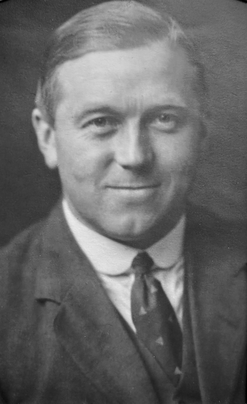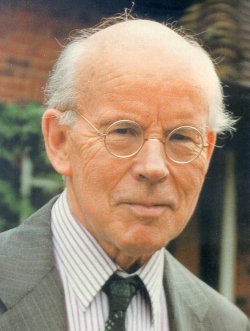Related Research Articles

Sidney Farber was an American pediatric pathologist. He is regarded as the father of modern chemotherapy for his work using folic acid antagonists to combat leukemia, which led to the development of other chemotherapeutic agents against other malignancies. Farber was also active in cancer research advocacy and fundraising, most notably through his establishment of the Jimmy Fund, a foundation dedicated to pediatric research in childhood cancers. The Dana–Farber Cancer Institute is named after him.
The Royal College of Pathologists (RCPath) is a professional membership organisation. Its main function is the overseeing of postgraduate training, and its Fellowship Examination (FRCPath) is recognised as the standard assessment of fitness to practise in this branch of medicine.
Sir James Calvert Spence, & Bar was an English paediatrician who was a pioneer in the field of social paediatrics. He was a founding member of the British Paediatric Association.

The Croonian Medal and Lecture is a prestigious award, a medal, and lecture given at the invitation of the Royal Society and the Royal College of Physicians.

Sir John Fraser, 1st Baronet, was Regius Professor of Clinical Surgery at Edinburgh University from 1925 to 1944 and served as principal of the University of Edinburgh from 1944 to 1947.
Sir James Cresseé Elphinstone Underwood FMedSci is a British pathologist who was awarded a knighthood for services to medicine in the 2005 New Year honours list.

Sir John Peter Mills Tizard was a British paediatrician and professor at the University of Oxford. Tizard was principally notable for important research into neonatology and paediatric neurology and being a founder member of the Neonatal Society in 1959. Tizard was considered the most distinguished academic children's physician of his generation.

Henry Roy Dean, also known as Prof. H. R. Dean, was a professor of Pathology at the University of Cambridge and Master of Trinity Hall, Cambridge.
Douglas Montagu Temple Gairdner FRCP was a Scottish paediatrician, research scientist, academic and author. Gairdner was principally known for a number of research studies in neonatology at a time when that subject was being developed as perhaps the most rewarding application of basic physiology to patient care, and later his most important contributions as editor, firstly editing Recent Advances in Paediatrics, and then of Archives of Disease in Childhood for 15 years, turning the latter into an international journal of repute with its exemplary standards of content and presentation.

Ronald Charles MacKeith FRCP was a British paediatrician. MacKeith was prolific in his endeavours. He was principally known for establishing the first cerebral palsy advice clinic, which was to become in 1964, the larger and more comprehensive Newcomen Centre for disabled children in Guy's Hospital. He founded the British Paediatric Neurology Association and the medical journal, Developmental Medicine & Child Neurology. His work gained recognition of the field of paediatric neurology as a science in several European countries.

Ronald Stanley Illingworth was a British born Yorkshireman and a paediatrician of renown. He was also a prolific writer, who wrote some 600 articles and at least 21 books, which were exceedingly popular and sold in large quantities. Illingworth was principally known for being largely responsible for introducing the science and practice of paediatrics to the UK in the early to mid-1940s.

John Lewis Emery was a British-born paediatric pathologist and emeritus professor at the University of Sheffield. Emery was most notable for being one of the founding fathers of paediatric pathology in the country, and for conducting research into haematology, developmental anatomy, congenital deformities, particularly hydrocephalus, and was probably Britain's leading scientist in the subject of unexplained infant deaths, or cot death.

Frederick John William Miller was a British paediatrician, who made critically important contributions in describing tuberculosis in childhood, including the definition of the treatment and control, of the disease. Along with Sir James Spence and Sir Donald Court, Fred Miller were responsible for the formulation of the major epidemiological cohort study called the Newcastle Thousand Families Study. After that the group was called the Newcastle Trio in the medical community.
Sir Alan William Craft is a British paediatric oncologist and Emeritus Professor of Child Health at Newcastle University. Craft was most notable for work as one of nine founders of the Children's Cancer Study Group, focusing his research on paediatric oncology, especially the epidemiology of bone tumours that further led to an oncology research unit which has been involved in aetiological studies and in particular the role of irradiation in the development of childhood cancer.

Sir Frederick William Andrewes was an English physician, pathologist, and bacteriologist.
Cynthia Mary Illingworth FRCP FRCPCH (Hon) was an English consultant paediatrician and medical author. She was the first consultant in paediatric accident and emergency medicine in the United Kingdom.
Sir Christopher John "Jack" Dewhurst was a British gynecologist. He was Professor and Head of Obstetrics and Gynaecology at the Royal Postgraduate Medical School, London University, from 1967 to 1985. He served as president of the Royal College of Obstetricians and Gynaecologists from 1975 to 1978.
Minnie Mariam Mathan is a pathologist, a pioneer in India in gastrointestinal ultrastructure research and medical administrator. She pioneered studies in the pathogenesis of intestinal lesions in tropical sprue and of the rotavirus as an important cause of acute diarrhea in Indian children.

Richard Henry Reeve White was a paediatric nephrologist, emeritus Professor of Paediatric Nephrology from the University of Birmingham morphologist and archivist for British Association for Paediatric Nephrology.
References
- ↑ "Lilleyman, Sir John (Stuart)" . Who's Who . A & C Black. doi:10.1093/ww/9780199540884.013.U41652.(Subscription or UK public library membership required.)
- 1 2 3 4 "Sir John Lilleyman". acmedsci.ac.uk. Archived from the original on 1 July 2023. Retrieved 1 July 2023.
- 1 2 Sanai, Leyla (2006). "Professor Sir John Lilleyman". Career Focus. British Medical Journal. 332 (7536): s50. doi:10.1136/bmj.332.7536.s50.
- ↑ "-John Lilleyman: Editor 1986-1992". Journal of Clinical Pathology. 46 (1): 1. 1993. doi:10.1136/jcp.46.1.1. PMC 501088 . PMID 16811188.